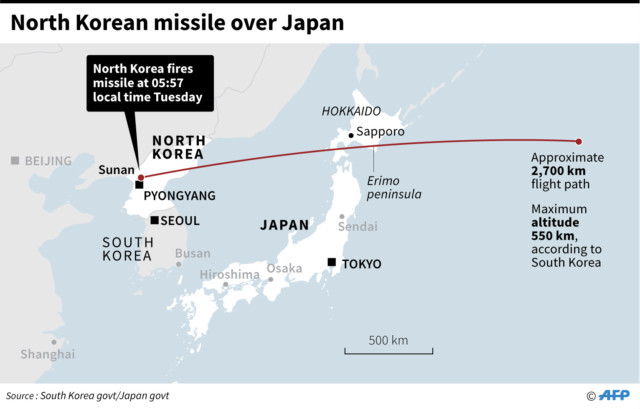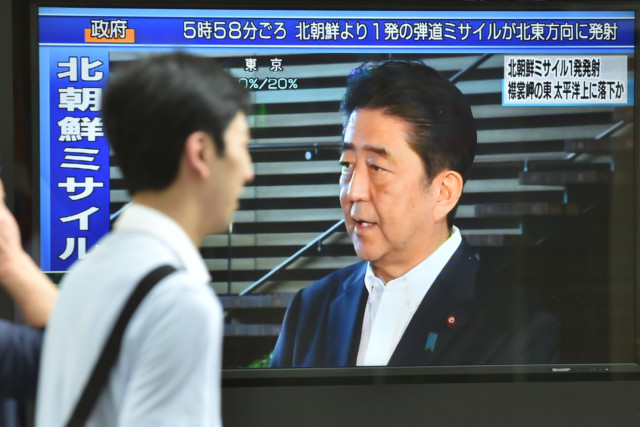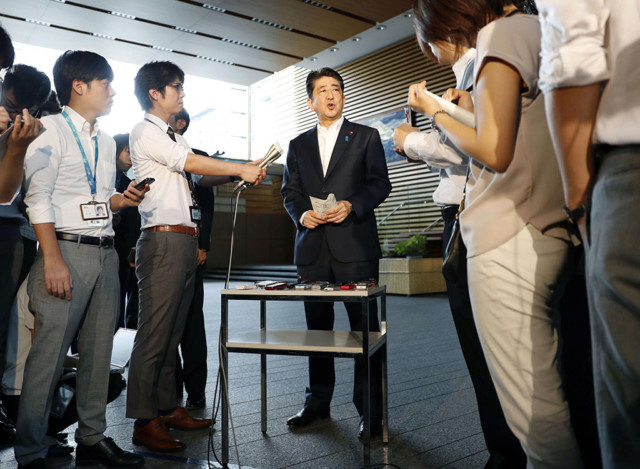The DPRK’s latest missile test has left many Japanese residents shaken. Sirens and electronic alerts woke cities and towns early Tuesday morning, telling citizens to take shelter.
CGTN’s Terrence Terashima reports from Tokyo.
According to officials on the Japanese island of Hokkaido, Tuesday’s missile launch by the DPRK was the first one to trigger the region’s “J-alert system.”
Warning messages on cellphones and other devices woke residents, alerting them to potential danger. Many, however, were bewildered and at a loss over where to evacuate.

Tuesday’s early morning missile was the not first projectile from the DPRK to fly over Japan. The last missile to do so was launched in April of 2009. Every missile, however, rattles residents.
“This is very troubling, both from the angle of international order and from a Japanese perspective,” according to resident Mitsunori Shima. “Even the US is deeply troubled over this. I believe there is a way countries can discuss issues without launching missiles.”
Senior Japanese government officials quickly expressed their irritation, and once again condemned Pyongyang for its actions.
“Japan and the United States agreed completely to further increase and strengthen pressure on the DPRK,” Japanese Prime Minister Shinzo Abe announced.
Experts say it is apparent that Pyongyang’s tests are meant to send signals to the United States and Republic of Korea, but it’s the Japanese who are feeling the immediate threat.

Pedestrians walk in front of a television screen displaying Japan’s Prime Minister Shinzo Abe speaking to the media in Tokyo on August 29, 2017, following a North Korean missile test that passed over Japan. Abe said that he and US President Donald Trump agreed to hike pressure on North Korea. (AFP PHOTO / Kazuhiro NOGI)
“The government had been monitoring the launch from the moment it was fired and we have done our utmost to ensure the safety of the people,” according to Abe. “The missile, which passed over our nation, represents the greatest and gravest threat to our nation ever.”
Earlier this month, the United Nations Security Council approved sanctions on the DPRK in response to its tests. Those measures, however, have been met with more provocations, including when the DPRK threatened to target the waters surrounding the U.S. territory of Guam.
There is concern over how to best address Pyongyang’s behavior. Some fear further increasing pressure would drive the the country to conduct another nuclear test.
Tokyo is talking with Seoul and Washington about possible future measures.
 CGTN America
CGTN America
 Japanese Prime Minister Shinzo Abe, center, speaks to journalists at his official residence in Tokyo after North Korea’s firing of a projectile over Japan Tuesday, Aug. 29, 2017. North Korea fired a ballistic missile from its capital Pyongyang that flew over Japan before plunging into the northern Pacific Ocean, officials said Tuesday, an especially aggressive test-flight that will rattle an already anxious region. (Kyodo News via AP)
Japanese Prime Minister Shinzo Abe, center, speaks to journalists at his official residence in Tokyo after North Korea’s firing of a projectile over Japan Tuesday, Aug. 29, 2017. North Korea fired a ballistic missile from its capital Pyongyang that flew over Japan before plunging into the northern Pacific Ocean, officials said Tuesday, an especially aggressive test-flight that will rattle an already anxious region. (Kyodo News via AP)
